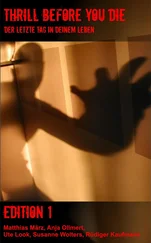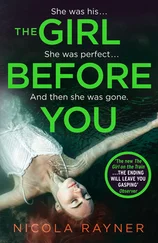“And?”
“Seems to me a lawyer could argue a couple of things. A strict product liability suit: the gun folks have been placing a dangerously defective product in the stream of commerce-”
“The girl fired the gun and it went off. Where’s the defect?”
“It goes back to how you unload the weapon. Even after you empty all the bullets from the magazine, there is still one in the chamber. Can you imagine? You have to remove that one separately, using the bolt of the weapon. Now, someone could contend that’s a design flaw. All you’d need is one expert-or, if we were very, very lucky, one seriously disgruntled ex-employee-who was willing to suggest that no one at the company ever bothered to link the magazine and the chamber more efficiently because it would cost too much.”
“Don’t most hunters know that?”
“About the bullet in the chamber? I expect so. But things happen. People forget. This is a route you might go if Spencer’s gun experts don’t find anything wrong with his actual weapon. If they can’t claim his particular gun was uniquely defective, then-what the hell?-you take on the whole damn Adirondack thirty-ought-six. You argue that the magazine and the chamber should be able to be unloaded simultaneously-or that there should be some sort of indication when there’s a bullet in the chamber. A light, maybe, or a flag. Perhaps we contend that the weapon needed to be childproof-have a more secure safety device.”
“And it’s conceivable that the gun company might settle?”
“Gun companies-Adirondack, Winchester, Browning-have insurance for exactly this sort of thing. It’s a cost of doing business.”
“What if Spencer refuses?”
“To settle?”
“Uh-huh.” Dominique was aware that she sounded hopeful. She could already imagine the publicity that would surround a trial.
Keenan wrote with a fountain pen, and for a long moment he seemed to be staring at the budlike gold nib as he formulated his answer in his mind. His fingers were elegant: not effeminate but as long and slender as a pianist’s, and each nail was an immaculate seashell pink box with four rounded corners. He had, Dominique thought, the perfect hands for a fountain pen. Finally he answered her. “It goes to court in three or four years,” he said, “and then Spencer wins or loses. Who can say? It would depend upon his experts-and theirs. And if Spencer’s little girl is sufficiently telegenic, and if Spencer doesn’t look downright evil to the jury-”
“Spencer, evil? I can think of many words to describe Spencer, but evil isn’t exactly top of the list.”
“Evil either because he looks like someone trying to recoup from an injury caused by his own daughter-that can certainly put off a jury-or evil because he works for us. Obviously we’ve never done anything as outrageous as, say, the Animal Freedom Front, but we’ve irritated our share of folks in this world who believe our opinions are a tad extreme. Who knows? Maybe we’ll get some doctor or scientist from that medical school on the jury-someone who still hasn’t forgiven FERAL for getting their research labs shut down a couple years back.”
“They were giving cats AIDS and crystal meth-and then killing them.”
He shrugged. “And we might be surprised if somehow we could prevent his brother-in-law from coming across as a moron of Herculean proportions. After all, we’d have an attractive, remorseful teenage girl-Charlotte is what now, twelve?-whom we can portray as desperately traumatized by what happened and a small-town lawyer from Vermont. They might look pretty good to a jury.”
“And even if the manufacturer does eventually settle, we still get three or four years’ worth of media coverage, right?”
“Probably not that long,” he answered. “At some point the judge puts us all under a gag order. Or they settle quickly to make this whole incident go away.”
Dominique thought about this and wondered suddenly if Spencer might actually need a windfall settlement. She didn’t think so: He came from some money, and Catherine was absolutely loaded. His mother-in-law lived in some massive Park Avenue apartment, and the Setons owned that baronial place on a hill up in the White Mountains. She’d seen Spencer’s pictures. And it wasn’t as if this injury-even if the poor guy did lose his right arm-was going to affect his ability to do his job. It wasn’t like you needed two hands to rewrite an assistant’s news release or plan a press conference or make catty comments about bunny-tested eyeliner on TV talk shows.
Besides, that was the McCullough family’s decision to make, not hers. Her only responsibility was to FERAL. For all she knew, nothing would come of this, anyway. But she decided that she liked the notion of a lawsuit against a gun manufacturer. She liked it very much.
“It’s too bad you can’t be Spencer’s lawyer,” she said.
“Oh, product liability isn’t exactly my specialty. But obviously I’d be happy to work with the right person.”
“You know who that might be?”
“I’d recommend Paige Sutherland.”
“I like Paige.”
“Course you do,” he said, and he slipped the cap back on his fountain pen. “Want me to call her?”
“And Spencer.”
He raised his eyebrows mischievously. “Yes. We can’t forget to tell Spencer.”
“No.”
“I’ll call him right now,” Barrett said. “Besides, I want someone to photograph his shoulder in the next day or two-before it gets any better.”
“I don’t believe there’s much chance of that.”
“Pardon me. Before it outwardly begins to look less repulsive. We want images that show Spencer at his absolute worst.”
For a moment she tried to envision what the wound must look like and the sort of agony her communications director was probably enduring, but her mind kept offering images instead of the deer she had seen in the countryside beyond Montreal-upstate New York, the Laurentians-the animals shot and disemboweled and left hanging on the families’ front porches. She wanted to be sympathetic to people, too, but the truth was that she just didn’t have it in her.
Late Tuesday afternoon, while a photographer was taking pictures of her uncle Spencer in the hospital in Hanover, Willow Seton saw her first urinal. Urinals, actually. There were two of them in the men’s room in the clubhouse at the Contour Club. She was showing them to Charlotte-seeing them for herself-because this pair had a unique adornment all the grown-ups knew about but the women (at least) never discussed and because this was the most gloriously anarchic activity she could think of at the moment to take her cousin’s mind off her father. Since they’d arrived at the club her cousin had done nothing but continue to wallow in remorse. She’d sat, almost unmoving, in one of the big wrought-iron chairs that faced Mount Lafayette, and she hadn’t even bothered to change into her tennis shorts or her gleefully inappropriate string bikini. She wasn’t sobbing anymore, but she wasn’t talking, either. She was, in fact, barely moving.
Now Willow had her up and about. This wasn’t the sort of athletic, good-for-you activity in which her family usually indulged here at the club, but at least it was something. A project. She gestured for Charlotte to wait just outside the wood-paneled door with the silhouette of a male golfer in knickers, while she slithered in first to make absolutely certain it was empty. Willow didn’t believe there was a man in there because she had been hovering in the pro shop for close to ten minutes, carefully staking out the door. But she thought she should check-just in case. Charlotte was in no condition to be yelled at.
“Coast is clear,” she said, once she had confirmed that the room was empty. She had emerged partway from the doorway and glanced quickly out the club room’s picture windows to make sure that her grandmother was still on the practice putting green and her own mother was still reading a magazine with Patrick beside her in his baby chair.
Читать дальше











